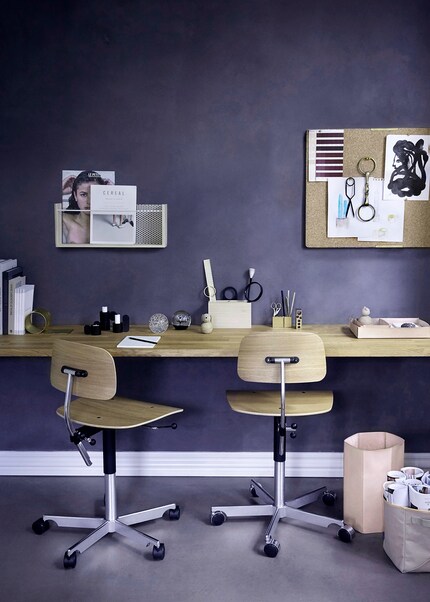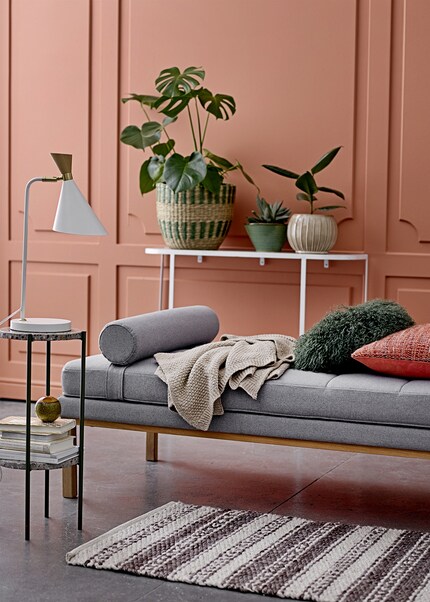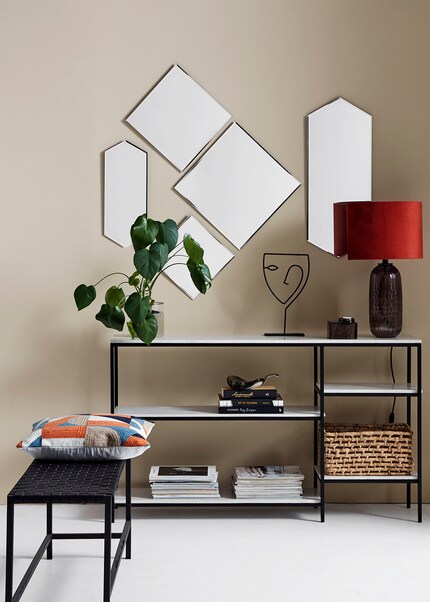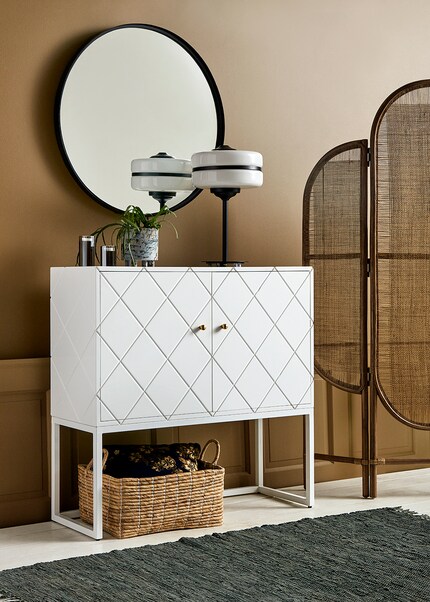
Guide
Bought the wrong colour? Here's what you can do
by Anika Schulz

Walls don't necessarily have to be white. Whether blue, beige or purple - I'll tell you which wall colour goes with what.
With the right colour, you can not only make your home cosier, but also get the best out of your rooms by making them look smaller or larger. But it's not that simple. So think about the colour scheme before you paint your walls so that you don't overshoot the mark like me.
Around 15 years ago, I had such an aha moment and woke up on a Saturday morning with a crazy idea: I needed a change and I needed it now. Without giving it much thought, I drove to the nearest DIY store and bought some yellow wall paint and painting utensils. The result was impressive. However, it didn't quite work out with my furniture. Most of it was black. I felt like Willi in Maya the Bee Land in my new bedroom. To make sure you don't make the same mistake, I'll tell you which wall colour to use to show off which furniture.
One of the most surprising combinations for me, as I would never have thought of combining light-coloured wooden furniture with dark purple walls. However, the interior brand Oyoy proves that this combo definitely works. You can really go big with wooden furniture. But keep the wood in the same colour to create a harmonious effect. Silver metal accents provide the finishing touch.


Red and orange tones such as this peach colour (see above) have a warm effect. Light grey is a particularly beautiful contrast. The same applies to silver details. Peach takes the harshness out of the metal. Personally, I would also like powder pink or nude-coloured accents in this example. Warm shades on the walls are suitable for rooms facing north or east, as they are rarely or never flooded with light.
Pure white can sometimes look harsh. Cream or beige, on the other hand, looks much warmer and is still easy to combine. I used to be a fan of beige paired with white. In my opinion, an unbeatable duo. Until I discovered the combination with black thanks to the brand Nordal (see picture). The beige takes the edge off the dark non-colour. However, this trick only works if you limit yourself to a light beige colour, otherwise the loosening effect is lost.


Yellow walls not only lift the mood, but are also intended to promote communication. That's why they are particularly suitable for the living room or dining area - places where you receive guests. So as not to steal the show from the bright colour or visually overwhelm you, I recommend a calm shade such as white as a contrast. In general, if you're unsure about your interior design, pair bright furniture with a plain wall colour or vice versa. That way, you're always on the safe side.
The Nordal brand skilfully proves that tone-on-tone is anything but boring: petrol-coloured walls meet armchairs of the same colour in its lookbook. The difference lies in the material, which is matt on the walls and glossy on the furniture. Brass details provide colour accents and variety. Contrary to popular belief, dark colours are not a disadvantage in small rooms. The reason: they hardly reflect any light. As a result, the contours of the corners disappear visually and the room looks larger. If you are a fan of pictures, those with a light-coloured passe-partout stand out particularly well against a dark wall. [[image:28595159 "Picture: Nordal",28595684 "Image: Bloomingville"]]
Blue and green are currently setting the tone, and not just in terms of wall colours. They look pretty and have a calming effect. That's why they are suitable for the bedroom or living room. If you are bold in your choice of colour, you can either choose neighbouring colours for the furniture (these are next to each other in the colour wheel) or a complementary colour (in the case of Bloomingville, yellow). At first glance, this variant is a strong contrast, but one that is perceived as pleasant because it is a complementary colour.
Here's the link to allen Wandfarben. Follow me for more home and fashion tricks by clicking the button on my author profile.
When I’m not exploring the depths of the sea as an open water diver, I enjoy plunging into the world of fashion. On the streets of Paris, Milan and New York is where I keep my eyes peeled for the latest trends. And I’ll show you how to take them from the catwalk to your everyday life.
Practical solutions for everyday problems with technology, household hacks and much more.
Show all